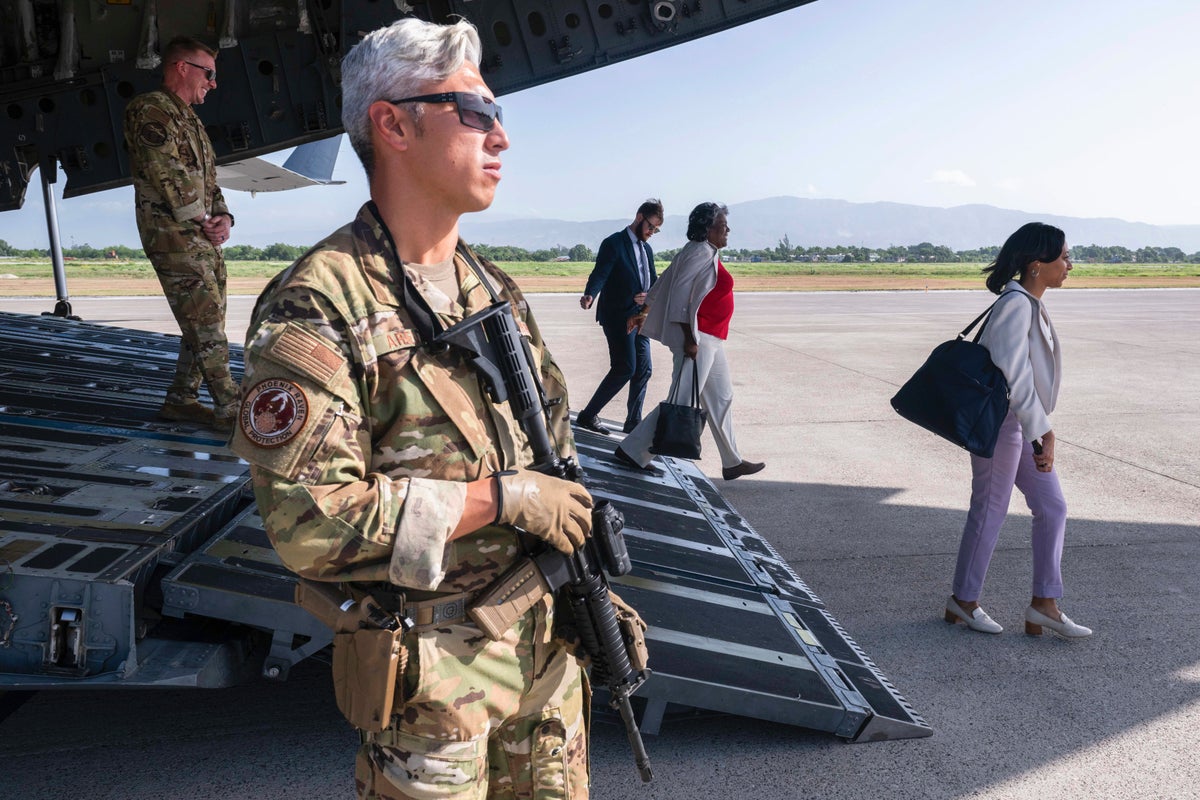
Support truly
independent journalism
The U.S. ambassador to the United Nations traveled to Haiti on Monday to meet leaders of the new transitional government and the Kenyan police who are the vanguard of a U.N.-backed force meant to help the country’s national police curb widespread gang violence.
A senior U.S. administration official said Ambassador Linda Thomas-Greenfield’s one-day visit also seeks to encourage action on Haiti's humanitarian crisis and political reform leading to democratic elections in 2026.
The ambassador will make two major announcements related to Haiti’s security and humanitarian crises, the official said, speaking on condition of anonymity ahead of the visit.
Gangs have grown in power since the July 7, 2021, assassination of President Jovenel Moïse and are now estimated to control up to 80% of the capital, Port-au-Prince, and have spread into surrounding areas. The surge in killings, rapes and kidnappings has led to a violent uprising by civilian vigilante groups.
There has been wide international support for the new transitional government led by Prime Minister Garry Conille, a former U.N. development specialist who arrived in the country in early June. Earlier this month, he told the U.N. Security Council that the Kenyan police will be crucial to helping control the country’s gangs and moving toward democratic elections.
According to U.N. agencies, the violence has displaced 580,000 people, more than half of whom are children, and resulted in 4 million people facing food insecurity.
In a signal of support for the U.N. mission to Haiti and the Kenyan police, Thomas-Greenfield will visit the police force’s living complex and meet Conille, members of the transitional presidential council and U.N. and civil society representatives.
Haiti asked for an international force to combat gangs in 2022, and U.N. Secretary-General Antonio Guterres appealed for months for a country to lead the force before the Kenyans came forward.
A second Kenyan contingent of 200 police officers landed in Haiti last week, following the first contingent of 200 officers last month. The multinational force will eventually total 2,500 personnel from Kenya, the Bahamas, Bangladesh, Barbados, Benin, Chad and Jamaica. They will be deployed in phases at a cost of some $600 million a year, according to the U.N. Security Council.
The U.S. has provided over $300 million to the force, which Thomas-Greenfield helped establish through a U.N. resolution, the official said, adding that the ambassador played a “central role” in securing international pledges of funding, equipment, and logistical support.
The Kenyan police will train the Haitian national police for joint security operations that have not yet begun, the official said.







